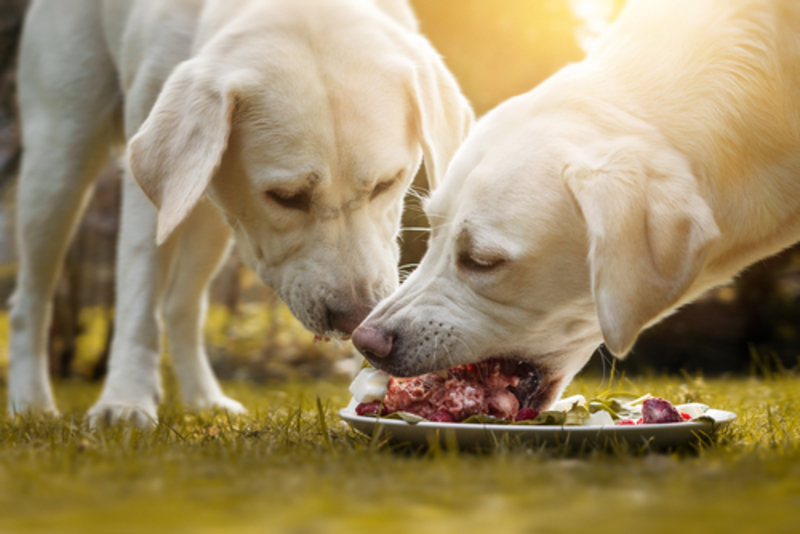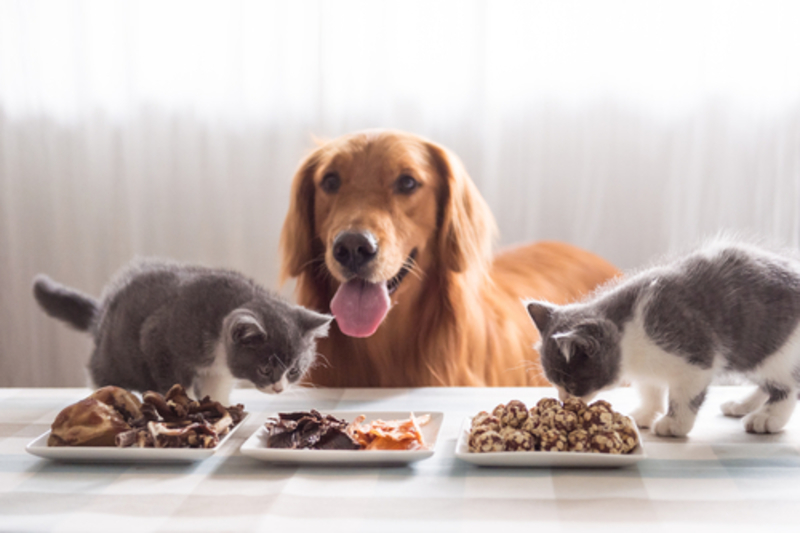Good nutrition is an important factor for a healthy body. This rings true not only for humans but for pets as well. Pet owners usually have a hard time selecting an appropriate diet for their cat or dog, considering that there are many factors to look at.
Like us, pets have their own nutritional needs. Each pet is unique and with every pet food brand claiming to be the best and to have the most nutrients for your pet, how do you work out which one will be the best choice? According to Dr. Jennier Maniet, a staff veterinarian working at Petplan and owner of two pet cats, choosing the perfect pet food is one of the hardest decisions you’ll need to make as a pet owner. Below are her tips on what you should look at and watch out for in pet food.

Avoid Unnecessary Additives
When selecting pet food, Dr. Maniet opts for those without artificial food additives. She advises her clients to avoid additives, but not because these are not safe for pets. Everything in pet food is approved by the Food and Drug Administration (FDA) and is safe for pets.
Food additives can either be natural or artificial and can serve different multiple uses. It can be used to preserve food, prevent discoloration, and even avoid food contamination. Additives are not just found in pet food, but in the food, we consume as well.
Additives can also be in the form of coloring and flavors. While these aren’t harmful to the body, they don’t give any benefits to one’s health as well. The choice to avoid these additives is purely a personal choice and would depend on the pet owner’s preference.
Each Pet has it’s Individually Needs
While a complete and well-balanced diet is important, it is also vital to know that each pet is different and will have varying nutritional needs. Some of the factors to consider include your pet’s age, breed, weight, and living conditions. Any health problems and even pregnancy should be considered when choosing the right pet food.
To serve as a guide to pet owners, the VCA Animal Hospital has posted a list of nutritional guidelines for cats and dogs to serve as a basis for your pet’s nutritional requirements. This is a quick and easy way to get some nutritional information but keep in mind that your pet’s veterinarian is still the best source of information and can tell you advice specific to your pet.

Read Between the Lines
Flashy food labels don’t always mean that they are better. According to Dr. Maniet, she doesn’t always look at the food label or the ingredient list. When choosing food for her own pets, she even has a hard time trying to read into everything written on the label, especially since food labels can sometimes serve as a marketing tool, rather than a dependable source of information on nutritional value.
Here’s Dr. Maniet’s personal set of criteria when choosing food for her pets
- It needs to be from a reputable company who have done their own published research in a peer-reviewed journal
- It needs to be complete and balanced
- The pet food brand company needs to have a full time board-certified veterinary nutritionist on board
- The diet should have been tested through the Association of American Feed Control Officials (AAFCO) and the statement should appear under the ingredient list
Don’t Be Tempted by Trends
Pretty similar to diet fads of humans, it’s not always in your pet’s best interest to follow food fads. Each pet needs something different compared to others and following trending diets can lead to nutrient deficiency in your fur baby. What might work for one pet may not be suitable for another, so best to ignore these fads completely and focus on what your pet really needs.
Consult Your Veterinarian
Pet owners naturally want what’s best for their pets and that includes making the right decisions when it comes to their nutrition. Therefore, it’s always important to seek the advice of a veterinarian as they are your partners in making sure that your pets get the best care and a healthy lifestyle.

Veterinarians can help pet owners understand what their pet’s basic nutritional requirements are and if there may be certain factors such as an illness that can affect their diet. Vets can also help you keep track if you need to adjust your pet’s diet and what food they likely need at a specific stage in their life.
Together with veterinarians, veterinary nutritionists can also give pet owners guidance on the best food for their pet. While these consultations can be costly, they can be offset by availing of pet insurance and of course, in the long run, will benefit your pet greatly.